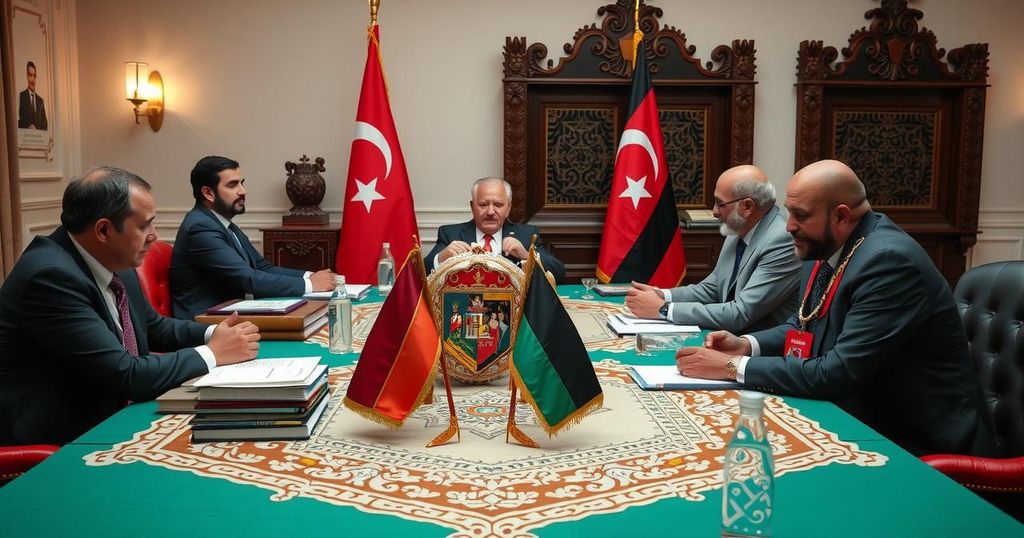World news
AFRICA, ARAB, BENGHAZI, BO, BOUZNIKA, DEMOCRACY, GOVERNANCE, GOVERNMENT, HIGH COUNCIL OF STATE, HIGH STATE COUNCIL, HOUSE OF REPRESENTATIVES, LIBYA, MOROCCO, MU, MUAMMA, MUAMMAR QADDAFI, NASSER BOURITA, NATIONAL UNITY, OPPOSITION, POLITICS, RABAT, SIERRA LEONE, SK, SKHIRATE, TRIPOLI
David O'Sullivan
0 Comments
Libyan Rivals Engage in Talks in Morocco to Resolve Political Deadlock
Delegations from rival Libyan factions engaged in talks in Morocco to resolve a political deadlock and avert chaos. Libya has been divided since 2014 following a NATO-backed uprising. The discussions aim to unite the High Council of State and the House of Representatives, and prepare for credible elections, post a stalled political process after the failed 2021 elections.
Delegations from competing Libyan factions resumed discussions in Morocco on Wednesday, aiming to resolve a prolonged political deadlock that threatens to plunge the nation back into turmoil. Following the NATO-backed revolution that ousted Muammar Qaddafi in 2011, Libya has experienced instability since splitting into two rival administrations in the east and west in 2014. The round of talks, held in Bouznika near Rabat, included representatives from the High Council of State in Tripoli and the House of Representatives in Benghazi.
Moroccan Foreign Minister Nasser Bourita, who opened the discussions, emphasized the importance of collaboration among Libyan entities to maintain national unity and pave the way for credible elections. He remarked, “The numerous international and regional conferences on Libya will not replace the inter-Libyan dialogue which has credibility and ownership.”
The political journey towards reconciling the fragmented governance structures has faced stagnation since the collapse of the planned December 2021 elections, which were marred by disputes regarding candidate qualifications. The House of Representatives, formed in 2014, was meant to oversee a four-year transition, yet soon after established a rival government, claiming that the prime minister of the national unity government had exhausted his mandate, further entrenching the east-west divide within the country.
Since the fall of Muammar Qaddafi, Libya has endured a tumultuous political landscape, characterized by a lack of cohesive governance and sporadic violence. The country has been divided between two primary institutions: the High Council of State in the west and the House of Representatives in the east. These divisions have hampered efforts for stabilization and the establishment of a unified government. Despite various international interventions and agreements, including the 2015 Libyan Political Agreement which sought to establish a political framework, the situation remains precarious, underscored by the failure of anticipated elections in 2021.
In conclusion, the discussions in Morocco represent a crucial step towards addressing the political impasse that has beset Libya since its initial fragmentation in 2014. Both the High Council of State and the House of Representatives have significant roles to play in fostering dialogue to achieve stability. Ultimately, the aspirations for credible elections and a unified government hinge upon the ongoing efforts of both Libyan factions to compromise and collaborate for the betterment of their country.
Original Source: www.arabnews.com




Post Comment